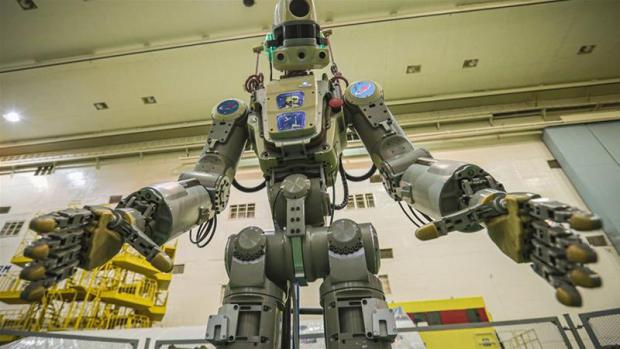
Breaking News
 The Federal Reserve is planned to inject $16 billion into the economy this week...
The Federal Reserve is planned to inject $16 billion into the economy this week...
 Dr. Rhonda Patrick: Fasting, Creatine, Brain Performance & Longevity Breakthroughs | PBD #740
Dr. Rhonda Patrick: Fasting, Creatine, Brain Performance & Longevity Breakthroughs | PBD #740
 HIGH ALERT! Americans Will Die for Israel's Evil War with Iran | Redacted w Clayton Morris
HIGH ALERT! Americans Will Die for Israel's Evil War with Iran | Redacted w Clayton Morris
 The BEST Natural Dewormer for Sheep & Goats (That Actually Works)
The BEST Natural Dewormer for Sheep & Goats (That Actually Works)
Top Tech News
 US particle accelerators turn nuclear waste into electricity, cut radioactive life by 99.7%
US particle accelerators turn nuclear waste into electricity, cut radioactive life by 99.7%
 Blast Them: A Rutgers Scientist Uses Lasers to Kill Weeds
Blast Them: A Rutgers Scientist Uses Lasers to Kill Weeds
 H100 GPUs that cost $40,000 new are now selling for around $6,000 on eBay, an 85% drop.
H100 GPUs that cost $40,000 new are now selling for around $6,000 on eBay, an 85% drop.
 We finally know exactly why spider silk is stronger than steel.
We finally know exactly why spider silk is stronger than steel.
 She ran out of options at 12. Then her own cells came back to save her.
She ran out of options at 12. Then her own cells came back to save her.
 A cardiovascular revolution is silently unfolding in cardiac intervention labs.
A cardiovascular revolution is silently unfolding in cardiac intervention labs.
 DARPA chooses two to develop insect-size robots for complex jobs like disaster relief...
DARPA chooses two to develop insect-size robots for complex jobs like disaster relief...
 Multimaterial 3D printer builds fully functional electric motor from scratch in hours
Multimaterial 3D printer builds fully functional electric motor from scratch in hours
 WindRunner: The largest cargo aircraft ever to be built, capable of carrying six Chinooks
WindRunner: The largest cargo aircraft ever to be built, capable of carrying six Chinooks
Soyuz rocket carrying Russian robot docks with space station

The Russian Soyuz space capsule carrying the human-like robot Fedor has docked with the International Space Station (ISS), days after the first attempt to dock with the ISS failed.
Fedor, which stands for Final Experimental Demonstration Object Research, is the first humanoid robot sent into space by Russia, and it will learn from and assist with small tasks performed by the astronauts.
It will only remain on the ISS for 10 days, coming back to Earth on September 7.
The robot is the size of a human adult and can emulate movements of the human body using its robotic hands, which have fingers that can hold equipment such as screwdrivers and fire extinguishers.
On the official Fedor Twitter account, its handlers jokingly wrote "sorry for the delay, I was stuck in traffic" after the Soyuz capsule attached to the space station.

 RNA Crop Spray: Should We Be Worried?
RNA Crop Spray: Should We Be Worried?

